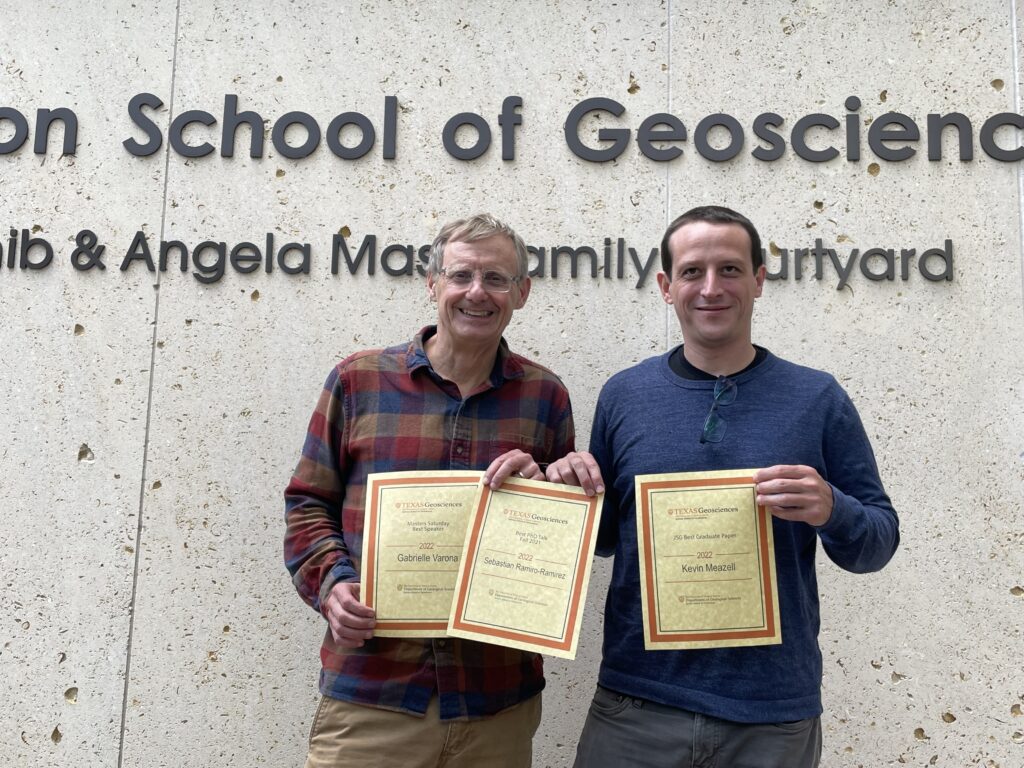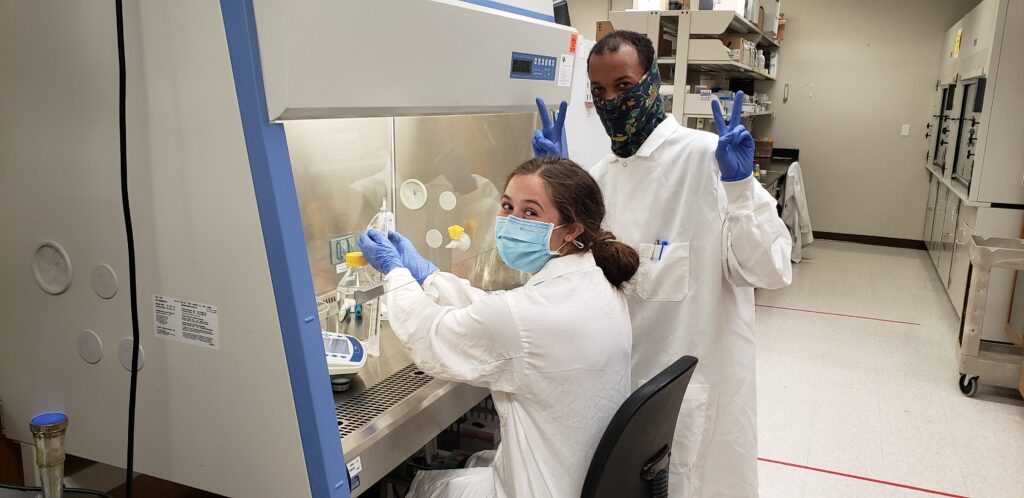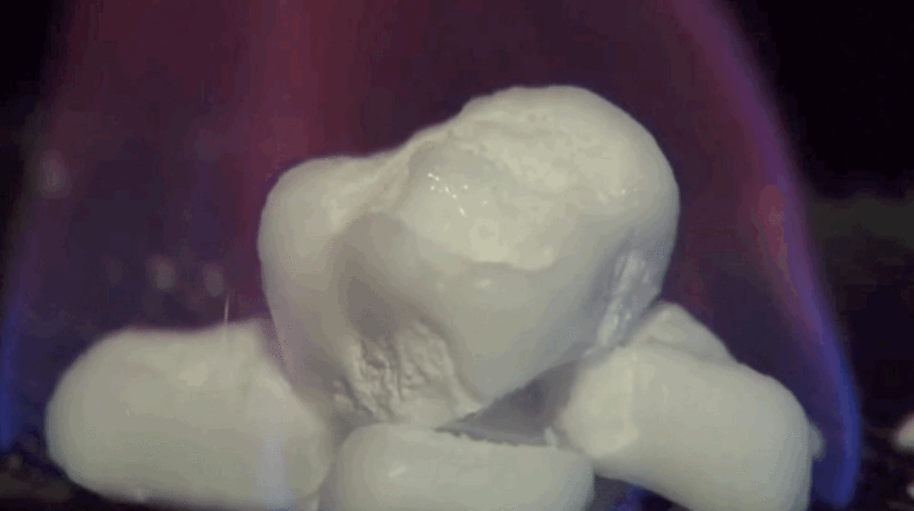The University of Texas at Austin has returned to the Gulf of Mexico to lead a Department of Energy-funded mission to sample and study methane hydrate, an ice-like solid composed of water and methane that forms at high pressure and low temperature. This difficult to reach and poorly understood substance has potentially wide-ranging effects on… Continue Reading Methane Hydrate: The Mission Continues
News from the GOM² project and related methane hydrates research at UT.
UTIG Students Take Top 2022 Departmental Awards
Congratulations Abby Varona (MSc), Kevin Meazell (PhD), and Sebastian Ramiro-Ramirez (PhD) who took three of the top nine student research awards at the UT Jackson School of Geosciences Department of Geological Sciences 2022 Departmental Awards! The annual awards recognize extraordinary efforts in the 2021-2022 academic year. The awards were presented by department chair Daniel Stockli,… Continue Reading UTIG Students Take Top 2022 Departmental Awards
Making Methane from Microbes: UTIG and UT Knoxville Hunt for Biological Source of Fiery Ice
Methane hydrate is a type of icy natural gas that accumulates in the subsurface around the Earth’s continental margins. Because methane is a hydrocarbon, the icy hydrate deposits are an important part of the carbon cycle, accounting for billions of tons — up to 22% — of Earth’s organic carbon. The methane feeding this layer… Continue Reading Making Methane from Microbes: UTIG and UT Knoxville Hunt for Biological Source of Fiery Ice
UT Austin Studies Mysterious Substance that Could Transform the Future of Energy
In 2017, UT Austin geoscientists led the first U.S. university-based expedition to the Gulf of Mexico in search of methane hydrates. Today, they are at the forefront of research to understand this possible new energy source. A UT News exclusive by Tracy Zhang.
Pressure Coring Technology One Step Closer to Gulf of Mexico Hydrates Test
By Constantino Panagopulos It’s mid-March on the Texas prairie outside the city of Cameron. Peter Flemings, a professor at the Jackson School of Geosciences, watches the rig hands lower the prototype sensor into the well. The counter still reads 1,000 feet from bottom when the thick steel cable suddenly goes slack. Moments later a dull… Continue Reading Pressure Coring Technology One Step Closer to Gulf of Mexico Hydrates Test
- « Previous Page
- 1
- 2
- 3
- 4
- 5
- …
- 7
- Next Page »





